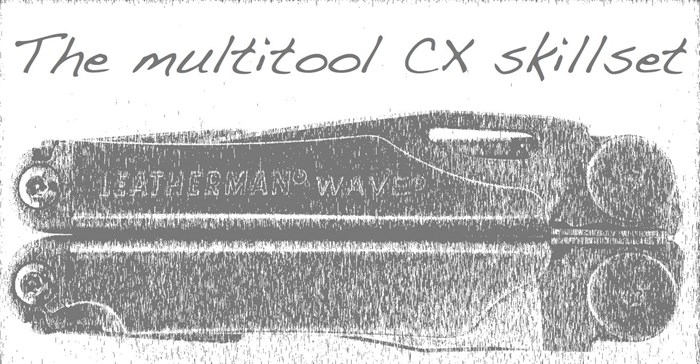
This made me think. Which are the brands I love and with each interaction with their product, service or interaction experience, they love me back?
Which one would I save from among all my casual-affair brands, the flavour-of-the-month brands, the hip and upcoming start-up brands, and my longstanding-relationship brands?
To have a true love affair with a brand, there has to be trust, mutual respect, significance, a connection, and a sense of giving beyond oneself. The kind of endearing relationship where one hugs and makes up after falling out, a relationship that is playful and adventurous and where one never kisses and tells.
I ended up with a "fingers-on-one-hand" and "fingers-to-spare" short list.
My first #lovebrand and the inspiration for this article is the Leatherman Tool Group of Portland, Oregon, in the USA.
I have owned various models of their famous multitools and have not been without one clipped to my belt in almost 20 years. I use the product almost every day and besides the fact that I now feel naked without one on my belt, it makes me happy!
Now that you have the background, let's return to the subject under discussion. In our interactions with various businesses in various industries in various countries, it's refreshing to see that an increasing number of companies are realising the importance of customer experience. For brands to survive to 2020 and beyond, they will have to start paying closer attention to the needs, wants and will of their clients.
In a connected world, consumers are taking more and more control in their interactions with businesses and it has even been suggested that consumers are starting to own the brand they are loyal to when we look at their need for:
• Instant gratification
• Personal attention
• Control
• Choice
• Connectedness
• Super communication
• Evaluation and tracking
• Listening more to others
Businesses that will survive will be the ones that listen, surrender control, create meaning, are better at the basics and solve problems for their customers.
Customer experience is being added as a discussion point on more and more board agendas, but in many instances with disregard, ignorance and no true aptitude for investment ?? operational, financial, human capital or otherwise.
Customer experience is allocated to the inexperienced, the uneducated or the uninterested. When it is not mistaken for client service or complaints handling, it is positioned as either an IT or marketing staff function.
This is no job for an IT architect or a brand ambassador; designing a company network or bullsh!tting your clients during a TV ad campaign will not cut it. This is a very specialised intervention that needs to supersede organisational structure and line reporting.
The chief customer officer (CCO) needs a seat in the boardroom, not to report, but to advise, support and delegate to each business silo regarding the importance of aligning client centricity.
Why should your CCO be the Leatherman for your company?
The CCO needs to bring the following multitool CX skills set with him or her:
The blade is needed to cut through the company bullsh!t. It is vital that the CCO must speak the truth about client centricity and the importance of the customer to the survival of the company.
Often radical changes or adjustments are needed to fix client-centric atrocities inherited from the past or suggested for the future.
This skill is to uncover and open the can of worms. Business needs to be reminded that it is there to solve a problem for its clients first and foremost and receives compensation as a result of that.
Sometimes it is needed to smooth out and polish the edges to make experiences great. What a nifty skill to be able to identify and optimise client touchpoints!
The most important skill to have is the ability to design and craft the perfect customer journey for your clients that will create or reignite the love affair with your brand.
Various shapes and sizes are needed to get the right fit. Attracting and engaging the right employees is not only key to creating moments of magic for your clients, but it is also the strength of the organisation as a structure.
Uncap your employees to ignite and spark passion and creativity for your brand, with the people who promote, defend and live your brand daily ? not unlike opening a refreshing cold brew.
It is important to gather the correct data, analyse and interpret it objectively and scientifically. This will not only help to indicate how client-centric a business is, but will also be a way of measuring performance over time. Measurement allows for correction, improvement and, most important, celebration.
The only way, in my humble opinion, to improve your brand experience for your customers is to appoint a passionate CCO with the correct multitool CX skills set to help your business:
• Connect and reconnect with your customers.
• Conceive, conserve and continuously anticipate your consumers' needs.
• Craft and continuously reinvent your customers' experiences for your brand.
• Create and orchestrate your CX strategy.
Maybe then I will only end up with a "fingers-on-one-hand" and "fingers-to-spare" short list of brands I truly dislike!
